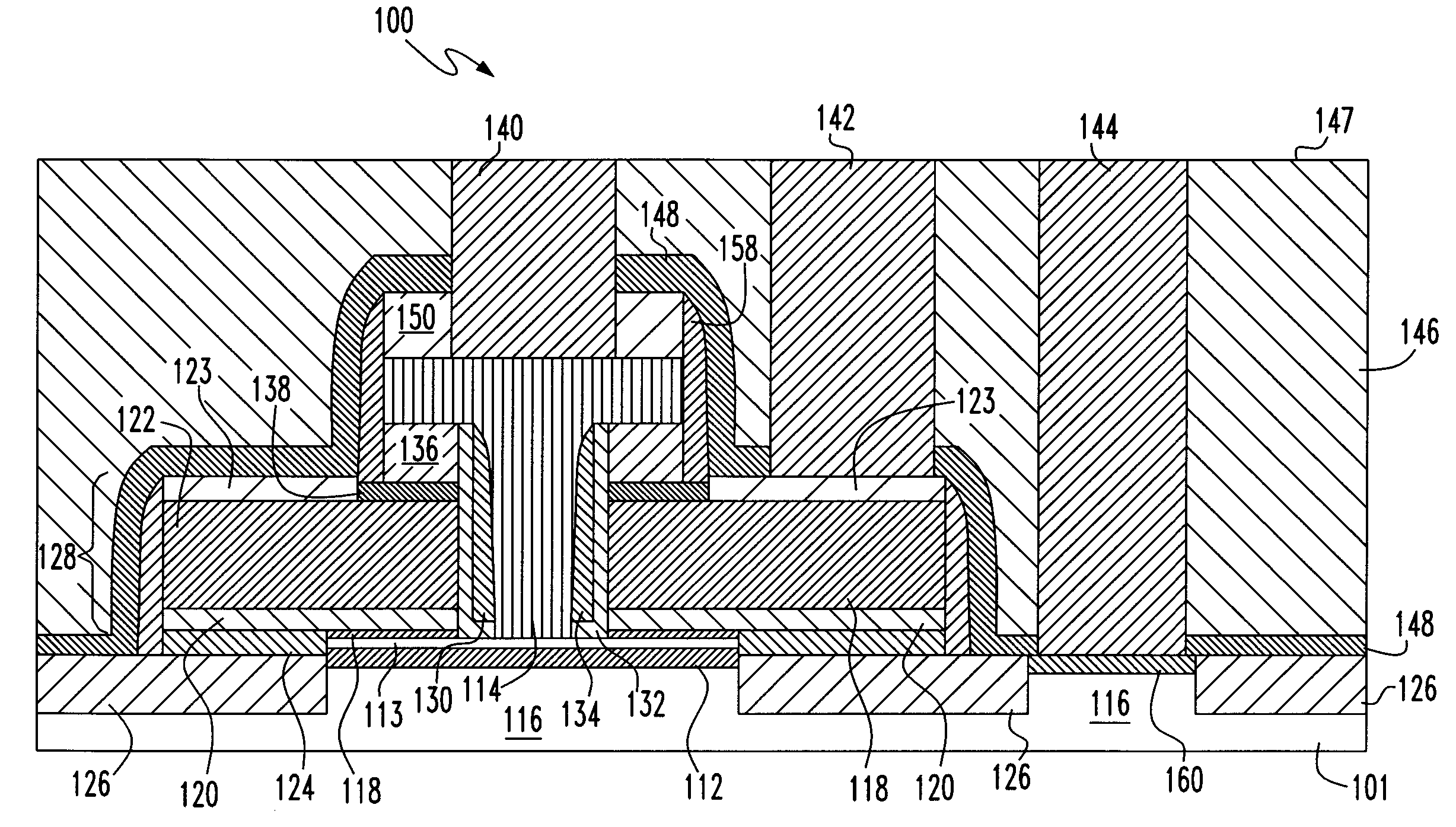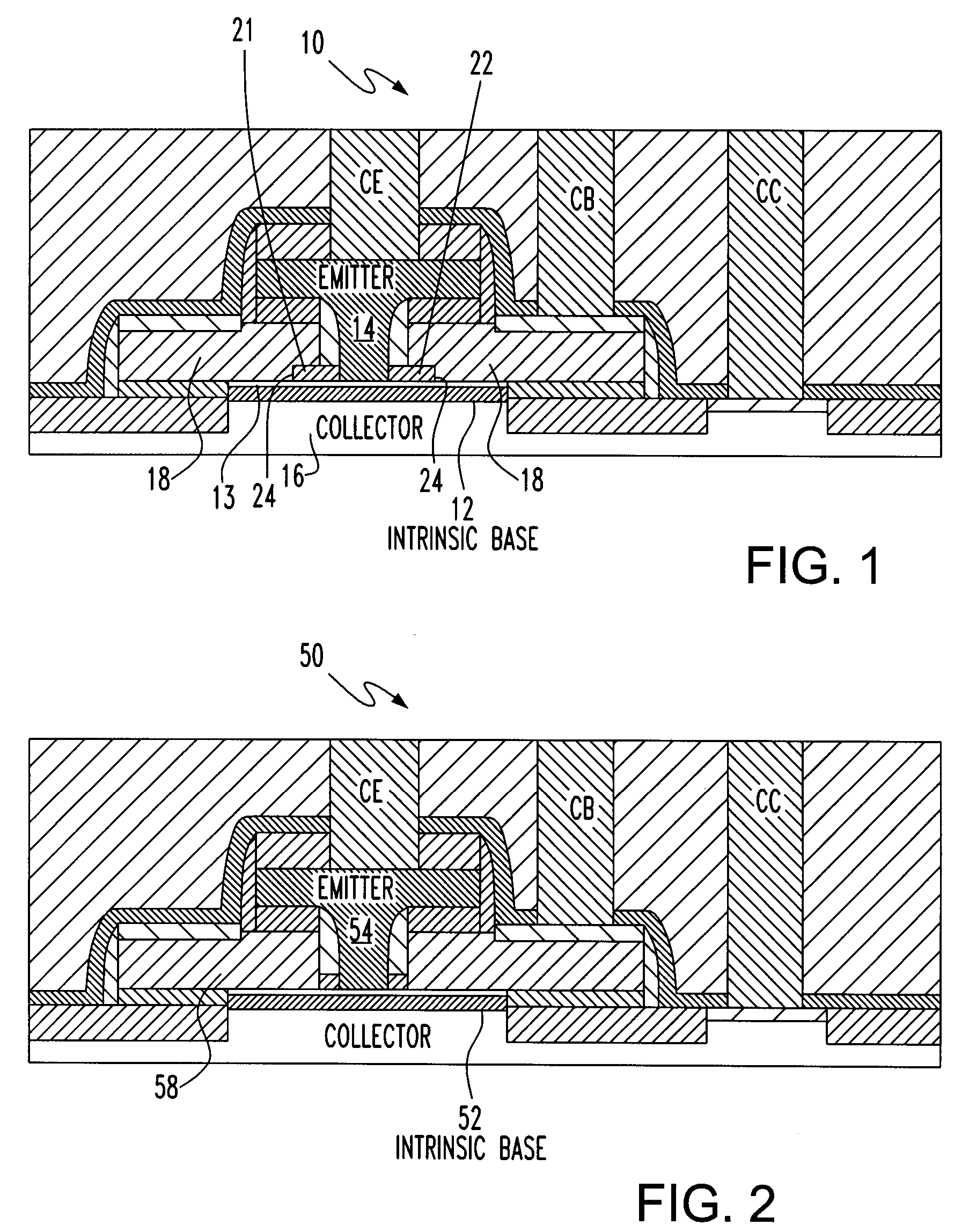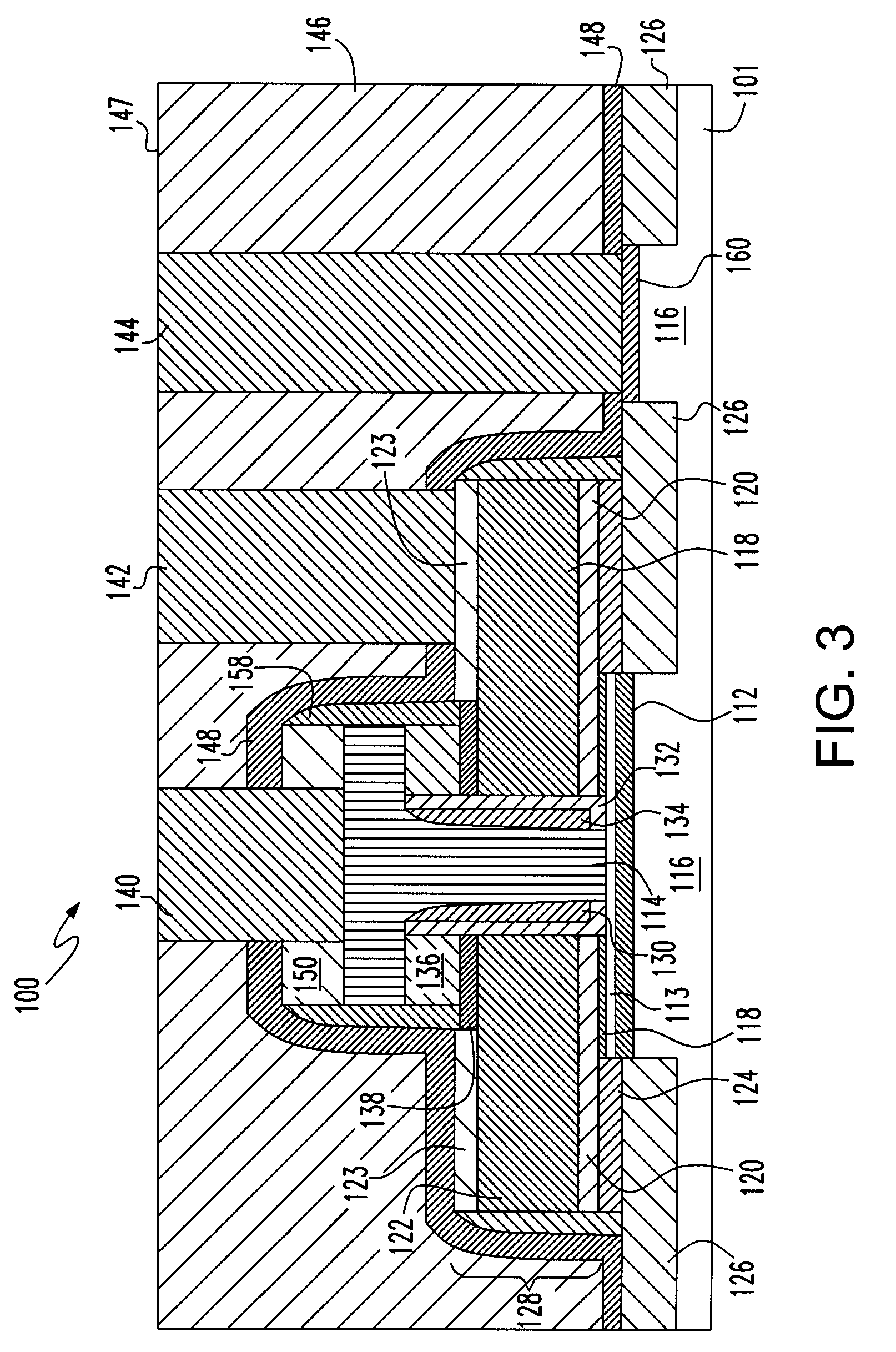Structure and method of making heterojunction bipolar transistor having self-aligned silicon-germanium raised extrinsic base
a technology of silicongermanium raised and heterojunction bipolar transistor, which is applied in the direction of basic electric elements, electrical apparatus, and semiconductor devices, can solve the problems of high base resistance, large variation in extrinsic base layer thickness, and hence transistor performance, and achieves reduced base resistance, high selectivity, and reduced resistance
- Summary
- Abstract
- Description
- Claims
- Application Information
AI Technical Summary
Benefits of technology
Problems solved by technology
Method used
Image
Examples
Embodiment Construction
[0023]FIG. 3 is a cross-sectional view illustrating the structure of an HBT 100 according to a first preferred embodiment of the invention. As shown in FIG. 3, HBT 100 is desirably fabricated from a substrate 101, e.g. wafer, of single-crystal silicon. The HBT 100 includes an intrinsic base including a single-crystal layer of silicon germanium 112 disposed over a collector 116 region of the silicon substrate 101. The intrinsic base further includes a single-crystal layer 113 of silicon disposed over the SiGe layer 112. A single-crystal layer 118 of silicon germanium is further disposed over the silicon layer 113. An emitter 114, desirably consisting of polysilicon, contacts the single-crystal silicon layer 113 from above. The raised extrinsic base of the HBT 100 includes SiGe layer 118, polycrystalline silicon layer 120, a polycrystalline SiGe layer 122, and a polycrystalline silicon layer 138 and a silicide layer 123 disposed over portions of the polycrystalline SiGe layer 122. A l...
PUM
 Login to View More
Login to View More Abstract
Description
Claims
Application Information
 Login to View More
Login to View More - R&D
- Intellectual Property
- Life Sciences
- Materials
- Tech Scout
- Unparalleled Data Quality
- Higher Quality Content
- 60% Fewer Hallucinations
Browse by: Latest US Patents, China's latest patents, Technical Efficacy Thesaurus, Application Domain, Technology Topic, Popular Technical Reports.
© 2025 PatSnap. All rights reserved.Legal|Privacy policy|Modern Slavery Act Transparency Statement|Sitemap|About US| Contact US: help@patsnap.com



